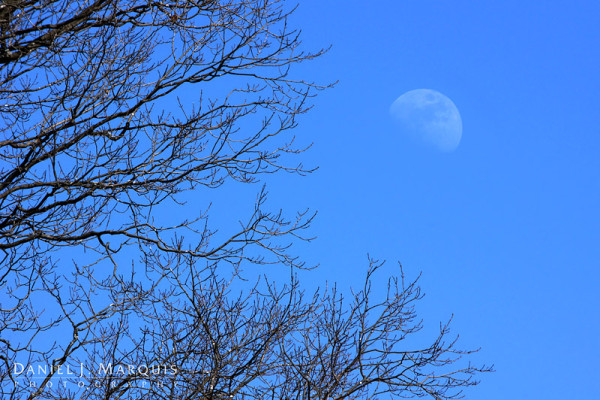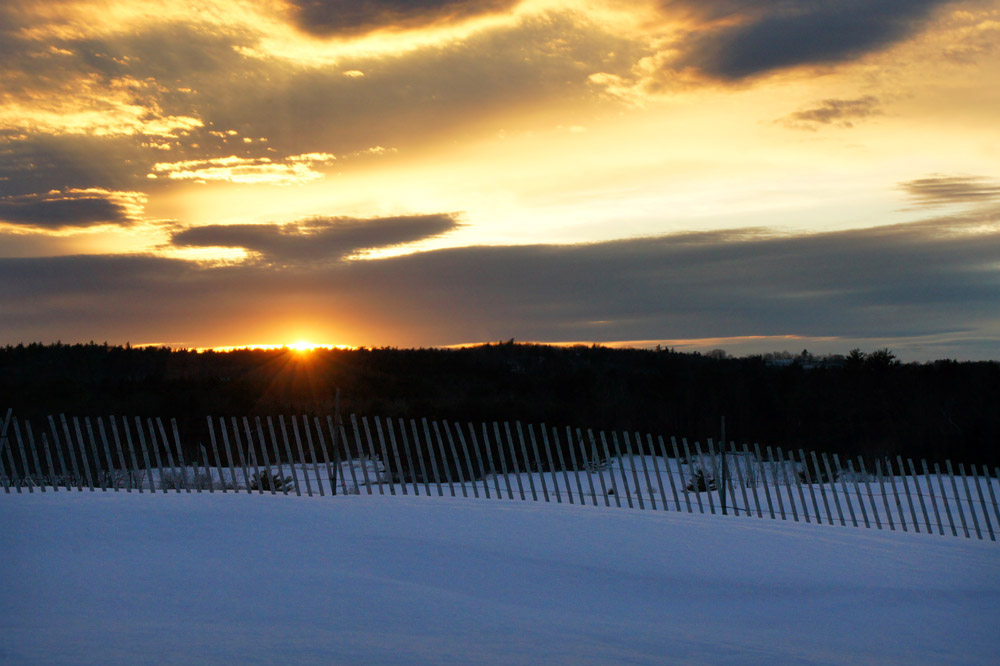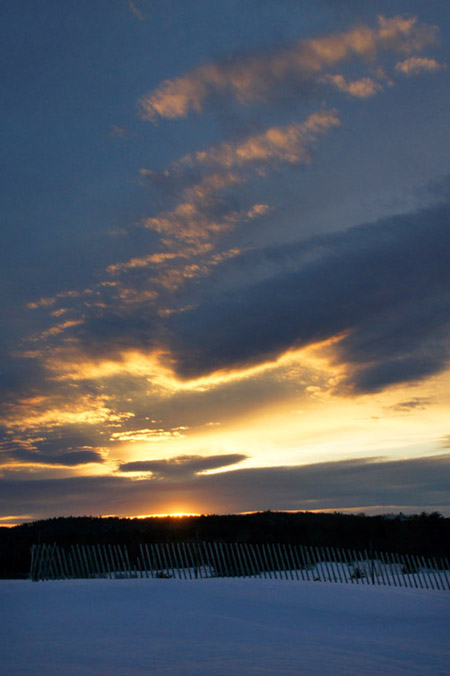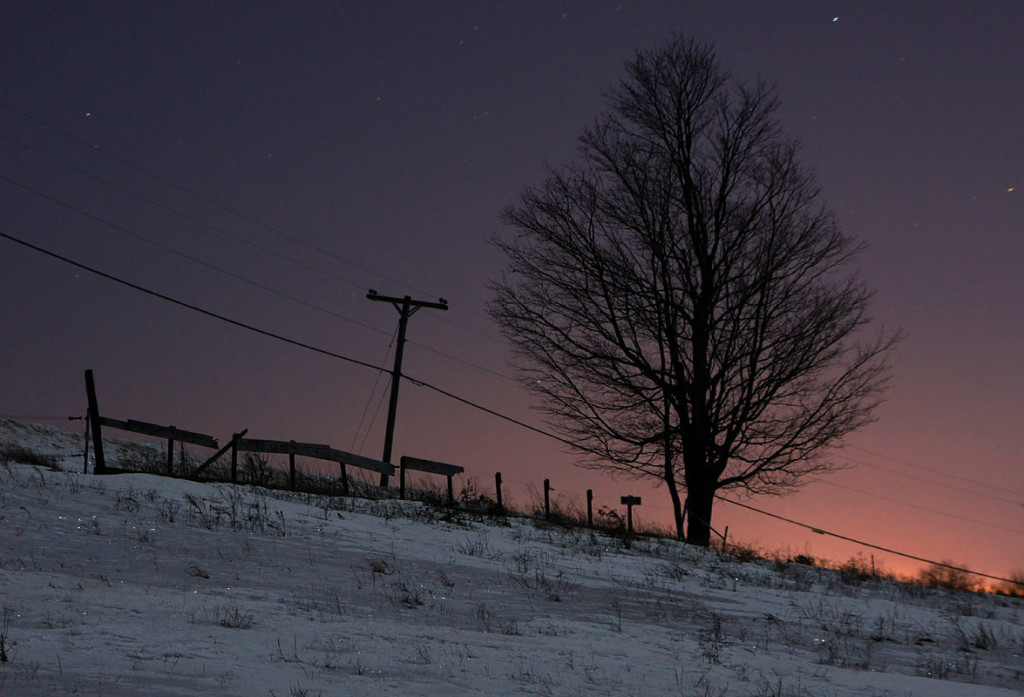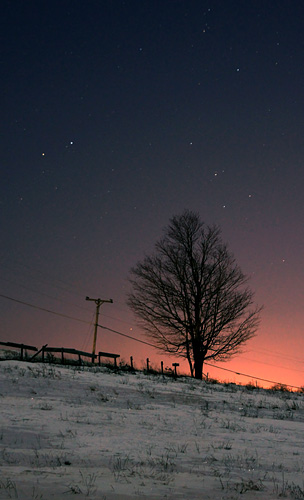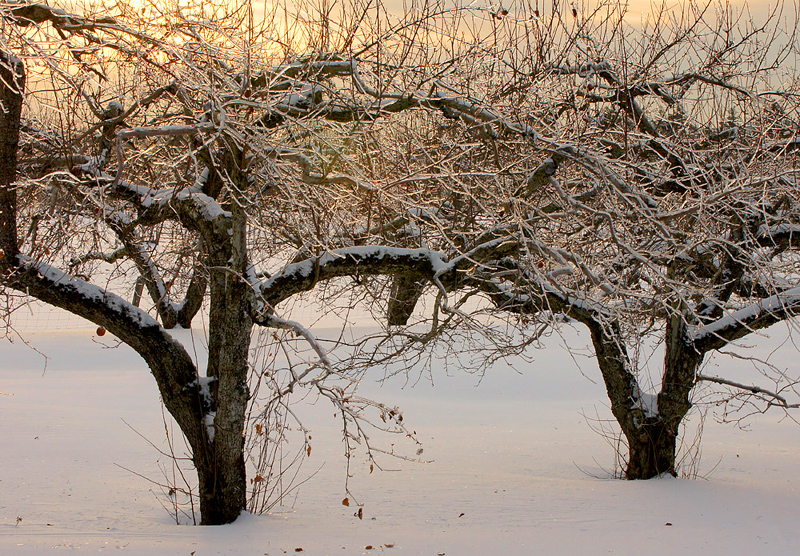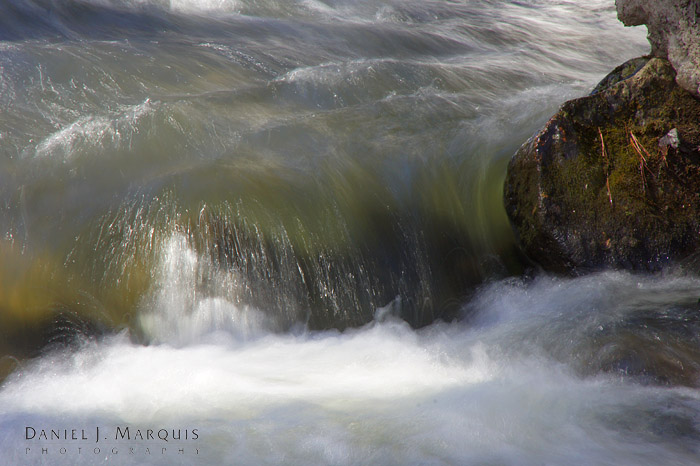
It’s been a long, hard, cold winter. So cold in fact, that it tends to prevent one from going out to photograph the beauty of all the snow that we have put up with. But now winter is over (sort of), and spring is on the way… or at least the calendar says it is. And so Sunday’s warm temps made me want to go outside on a photo excursion, even though I was pretty sure there wouldn’t yet be much of what I like to photograph. So let’s call it a reconnaissance mission and leave it at that. I would go see how the natural world was progressing into spring, and just in case, I would bring my camera.
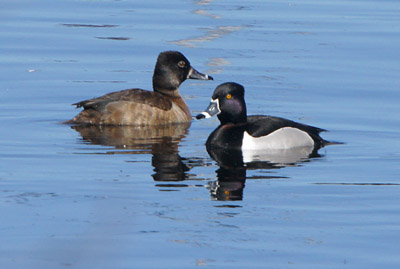
A mated pair of Ring-necked ducks
My first stop was more of a birdwatching exercise than photographic. There was an uncommon duck being seen on the Androscoggin River along the Riverwalk in Auburn, so that’s where I headed; in search of the female Long-tailed Duck. The Long-tail is common in Maine in the winter, but only on the coast, not on inland rivers. So I had hoped to get some closer photos of it than I usually have the chance to. Long story short I didn’t find it. However, I was lucky enough to find a pair of Ring-necked Ducks; perhaps more photogenic than the Long-tail. The Ring-neck is common on Maine lakes and ponds, but only during spring and fall migration, so it was nice to find this pair basically in my own back yard.
This is not meant to be a lesson in birding, but I thought it would be nice to let you know that when it comes to ducks, we do have more than the ubiquitous Mallard here in L/A.
My next stop was to one of my favorite local sites for photos; Bobbin Mill Brook on North River Road. I wanted to see how the snow was receding to open up the stream. The walk into the woods, along an obvious deer trail, was not very easy. The snow was still a foot or so deep, and soft, so my feet kept sinking in under the weight of my fully loaded gear bag. The stream was partially open and running in the middle. But most of the rocks that create the interesting cascades were still under a good cover of ice and snow. I had to search hard to find any interesting compositions. The deep snow also made it difficult to set a tripod, which is necessary to make interesting moving water images. I shot what I could, but I didn’t go far; it just wasn’t worth it.
 However, the snow in the woods was littered with pine cones that had fallen during the winter. These had some photographic potential. After a little searching, I found this cone next to a partially exposed rock. It was partly in the sun, which made the composition a little more interesting; although the exposure was tricky, trying to get the snow a clean white without blowing the highlights. This made for a good exercise to brush up on my photography skill.
However, the snow in the woods was littered with pine cones that had fallen during the winter. These had some photographic potential. After a little searching, I found this cone next to a partially exposed rock. It was partly in the sun, which made the composition a little more interesting; although the exposure was tricky, trying to get the snow a clean white without blowing the highlights. This made for a good exercise to brush up on my photography skill.
After I left the stream, I headed up the road to some farm fields. I was looking more for birds here than for photo subjects. I thought there was a good possibility that there might be some migrating geese looking for left-over kernels in the corn fields. I didn’t really expect to find anything photogenic. But that’s where I was wrong. Sometimes the most captivating images happen when I least expect them, and that often happens to me with the moon. Sometimes I go out seeking moon scenes, and sometimes they just happen. And that’s how it was with this last image. It was a matter of being at the right place at the right time. The moon was out early, and still fairly low in the sky. By itself it wouldn’t hold much photographic interest. But when I looked up at this one specific tree (looking for birds), the moon was hanging just off to the side of the branches. I had to work fast before it got much higher in the sky, changing to my 500mm lens to get the most magnification. After finding just the right position and taking a couple of test shots (God bless digital), I made this image.
So although I didn’t have the most rewarding photo outing, it felt good to get out with my camera again, knowing I’ll be ready when Mother Nature is.
